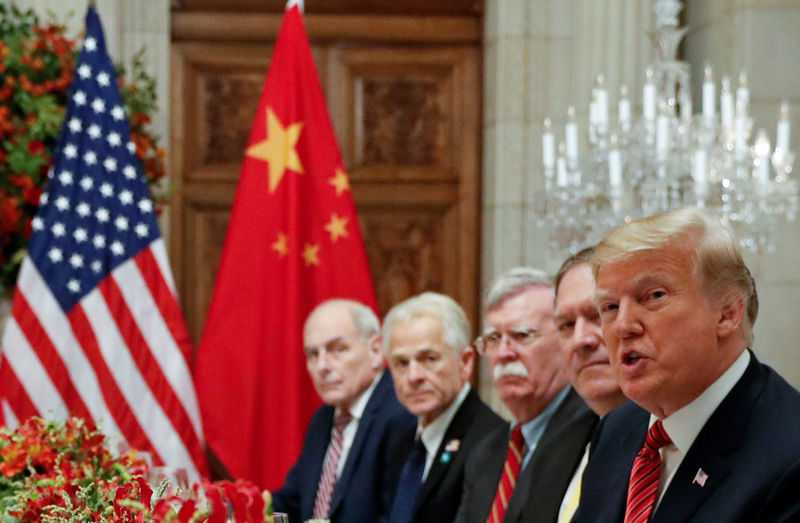White House fuels fear and confusion on U.S.-China deal
06 December, 2018

The Trump administration raised doubts Tuesday about the substance of a U.S.-China trade cease-fire, contributing to a broad stock market plunge and intensifying fears of a global economic slowdown.
Investors had initially welcomed the truce that the administration said was reached over the weekend in Argentina between U.S. President Donald Trump and Chinese President Xi Jinping — and sent stocks up Monday. But on Tuesday, after a series of confusing and conflicting words from Trump and some senior officials, stocks tumbled, with the Dow Jones shedding about 800 points, or 3.1 percent.
White House aides have struggled to explain the details of what the two countries actually agreed on. And China has not confirmed that it made most of the concessions that the Trump administration has claimed.
“The sense is that there’s less and less agreement between the two sides about what actually took place,” said Willie Delwiche, an investment strategist at Baird. “There was a rally in the expectation that something had happened. The problem is that something turned out to be nothing.”
Other concerns contributed to the stock sell-off, including falling long-term bond yields. Those lower rates suggested that investors expect the U.S. economy to slow, along with global growth, and possibly fall into recession in the coming year or two.
John Williams, president of the Federal Reserve Bank of New York, also unnerved investors by telling reporters Tuesday that he supports further Fed rate hikes. His remarks renewed fears that the Fed may miscalculate and raise rates so high or so fast as to depress growth.
The disarray surrounding the China deal coincides with a global economy that faces other challenges: Britain is struggling to negotiate its exit from the European Union. Italy’s government is seeking to spend and borrow more, which could elevate interest rates and stifle growth.
And in the United States, home sales have fallen sharply in the past year as mortgage rates have jumped.
Trump and White House aides have promoted the apparent U.S.-China agreement in Buenos Aires as a historic breakthrough that would ease trade tensions and potentially reduce tariffs. They announced that China had agreed to buy many more American products and to negotiate over the administration’s assertions that Beijing steals American technology. But by Tuesday morning, Trump was renewing his tariff threats in a series of tweets.
“President Xi and I want this deal to happen, and it probably will,” Trump tweeted. “But if not remember, I am a Tariff Man. When people or countries come in to raid the great wealth of our Nation, I want them to pay for the privilege of doing so.”
Trump added that a 90-day timetable for negotiators to reach a deeper agreement had begun and that his aides would see “whether or not a REAL deal with China is actually possible.”
He revisited the issue later Tuesday with a tweet that said: “We are either going to have a REAL DEAL with China, or no deal at all — at which point we will be charging major Tariffs against Chinese product being shipped into the United States. Ultimately, I believe, we will be making a deal — either now or into the future. China does not want Tariffs!”
The president’s words had the effect of making the weekend agreement, already a vague and uncertain one, seem even less likely to produce a long-lasting trade accord.
TAG(s):
